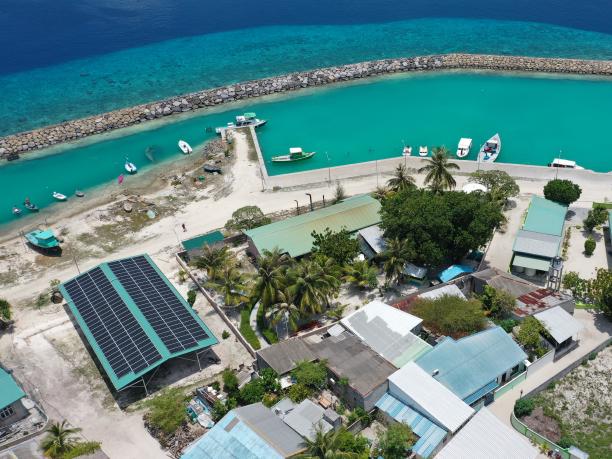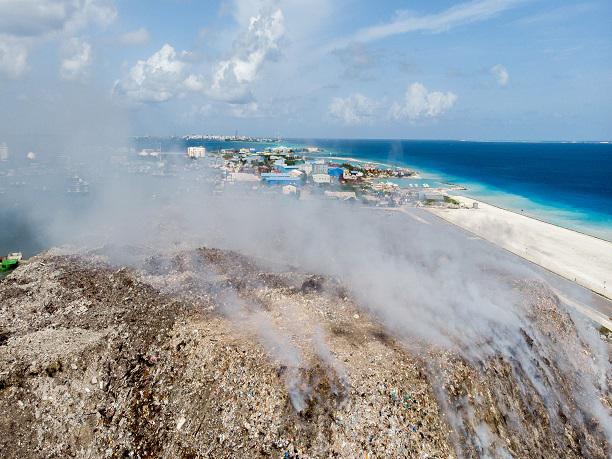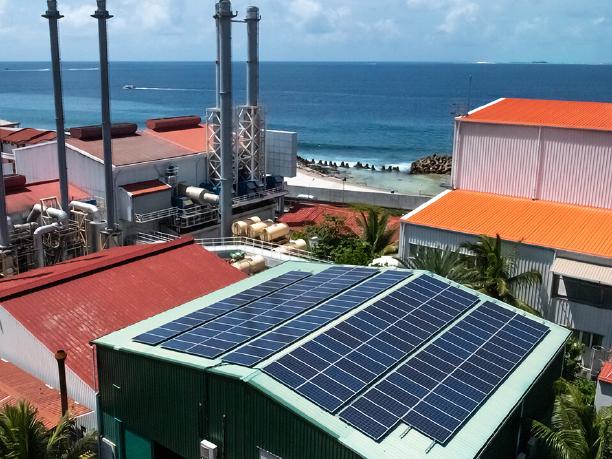
Attaining Energy Security with Renewable Solutions
Maldives cuts back on diesel by going green with more solar, ocean, and wind, and other renewable energy solutions.
Listen to the article
$52.5 million for 8 projects
$3.3 million for 3 TA projects
$1 million for 15 activities
The Japan Fund for the Joint Crediting Mechanism (JFJCM) aims to provide financial incentives for the adoption of advanced low-carbon technologies in ADB-financed projects utilizing the Joint Crediting Mechanism (JCM), a bilateral offset crediting mechanism initiated by the Government of Japan (GOJ). The fund offers opportunities to engage in projects with strong development characteristics and long-term climate change mitigation benefits that contribute to global climate change and development initiatives, such as the Paris Agreement and the Sustainable Development Goals.
The JFJCM provides grants and technical assistance support to sovereign and nonsovereign ADB projects in developing member countries that signed a JCM bilateral agreement with the GOJ, including Azerbaijan, Bangladesh, Cambodia, Georgia, Indonesia, Kazakhstan, the Kyrgyz Republic, the Lao People’s Democratic Republic, Maldives, Mongolia, Myanmar*, Palau, Papua New Guinea, the Philippines, Sri Lanka, Thailand, Uzbekistan, and Viet Nam.
In 2024, the GOJ provided its annual contribution to the JFJCM, amounting to $18.5 million, almost triple the usual yearly contributions, to accelerate the development of new projects.
In 2024, the GOJ cleared two sovereign investment project concepts, worth $15 million, to proceed to the grant proposal stage: (i) Energy Efficiency and Renewable Energy Financing Program for Sri Lanka and (ii) Sustainable Energy Sector Development Program for Papua New Guinea. These investments are expected to reduce greenhouse gas emissions and provide economic, social, and environmental co-benefits.
*Effective 1 February 2021, ADB placed a temporary hold on sovereign project disbursements and new contracts in Myanmar.
3 January 2024
ADB and the Government of Maldives sign loan and grant agreements of up to $50.5 million to expand renewable energy generation and distribution in Maldives under the Accelerating Sustainable System Development Using Renewable Energy Project.

Maldives cuts back on diesel by going green with more solar, ocean, and wind, and other renewable energy solutions.

Women in Palau are getting access to loans to power their homes with clean energy.

ADB, together with the Asian Infrastructure Investment Bank, Islamic Development Bank, and the Japan Fund for the Joint Crediting Mechanism, is supporting Maldives with a regional solid waste management facility equipped with waste-to-energy technology.

The Preparing Outer Islands for Sustainable Energy Development Project aims to help transition Maldives’ carbon-intensive electricity supply into a green energy system, introducing disaster-resilient components and gender-inclusive livelihood activities, supporting fisheries, and piloting a transport system run by solar energy.